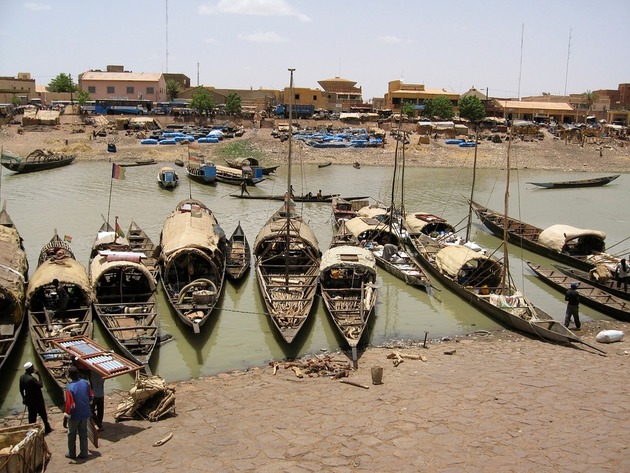Last week, the Minister of Foreign Affairs and International Cooperation of Mali, Abdoulayе Diop, visited Moscow and told Russian diplomats that the security situation in the country remains very tense: the terrorist activity directly threatens the country's sovereignty. Thus, the Malian transitional authorities took steps to achieve internal political unity and stability. Preparations are underway for a general democratic election.
At a meeting with his Russian counterpart Sergei Lavrov, the head of the Malian Foreign Ministry spoke about the prospects for expanding business contacts, implementing joint projects in the development of mineral reserves, energy, infrastructure, and agriculture. The next day, Lavrov went to Paris for a meeting of the foreign and defence ministers of the Russian Federation and France, where much attention was paid to the situation in the Sahara-Sahel region, including in the context of the redeployment of the French armed forces stationed there, including from Mali. According to Lavrov, the Malian leadership is concerned that the French want to leave the northern territories of the country where terrorist groups are very active.
At the meeting, the Russian diplomat explained to his French colleagues the situation with the regular accusations against Russia of encouraging certain contacts between the leadership of Mali and a Russian private military company. “We have shown the groundlessness of such accusations; we emphasized that through interstate cooperation we are providing military-technical assistance to Mali and helping to organize the work of the security services and the Malian army. As for the private military companies, they are more usual for the West not for Russia. We have listed the functioning PMCs from the US, Great Britain, France. There are many of them. The scale of their presence is not comparable to that of our private military companies. We suggest joining our forces against terrorist groups in the Sahara-Sahel region. They have been very active there, since the West bombed Libya, thus depriving the country of its statehood. We are trying to reassemble it, "Lavrov said after the meeting.
In an interview, Grigory Lukyanov, a Senior Researcher at Russia’s Institute of Oriental Studies, explained that the current goal is to boost business ties, particularly in the field of resource extraction and security services, where Russia has competitive advantages, Eurasia Review writes. In the future, Mali is capable of becoming a transport hub for commodities coming from the west and south to Africa’s north and then to the European Union, so apart from France, China and the United States are also interested in it. It’s vital for Paris to remain in its former colony and France is reluctant to let other players enter the country.
According to Lukyanov, France views the region as the former outskirts of its empire, while for Russia, Mali is a shady remote country and Moscow could trade activities there for a number of concessions related to other issues, crucial for its relations with France, the EU and the West in general. As far as Paris is concerned, it will most likely replace the current Malian government, which is sending pro-Russian signals, with another one that will better suit its goals.
As well-known facts, two military coups have taken place in Mali since August 2020. The first one, which occurred on August 18, 2020, ousted President Ibrahim Boubacar Keita. Interim President Bah Ndaw was removed from power by the military on May 26, 2021, while Deputy President Assimi Goita became Mali’s Transition President based on the Constitutional Court’s order.
There have been discussions at the United Nations Security Council, African Union, and the Economic Community of West African States (ECOWAS) about rivalry and competition for influence between France and Russia in Mali. The Economic Community of West African States reiterates the need to adhere to the transition timetable in respect of the elections scheduled for February 27, 2022 and calls on the transition authorities to act accordingly to ensure expeditious return to constitutional order. Accordingly, it calls on the international community to take the necessary measures to ensure that the transition authorities respect their commitment to an expeditious return to constitutional order.
The Republic of Mali, home to nearly 20 million people, is a landlocked country located on rivers Senegal and Niger in West Africa. As a former French colony, it persistently faces serious development challenges primarily due to its landlocked position and it is the eighth-largest country in Africa. Over the years, reform policies have had little impact on the living standards, majority highly impoverished in the country. As a developing country, it ranks at the bottom of the United Nations Development Index (2020 report).






